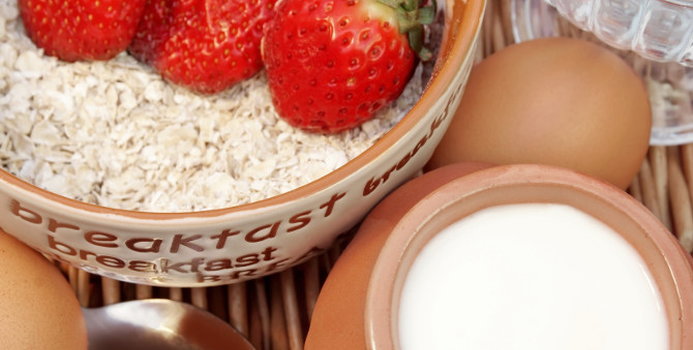Vitamin D is a fat soluble vitamin that plays a vital role in the human body. It has many functions, and a lack of vitamin D can lead to serious health problems. Bone growth is severely impaired from vitamin D deficiency. Vitamin D promotes calcium absorption in the body, which leads to strong bones. Without proper levels, bones will become soft and brittle and can lead to osteoporosis.
In children, vitamin D deficiency can cause rickets. Rickets is a disease occurring in children that causes bones to soften and leads to fractures or deformity. In addition, a lack of the vitamin can cause other chronic health conditions such as heart disease, arthritis, diabetes, high blood pressure and even cancer.
Because of its importance to the body, incorporating vitamin D in your diet is essential. An average healthy adult, between the ages of 19 and 50, should receive about 200 IU's of vitamin D a day. Older adults should need higher levels to ensure proper bone maintenance. Recommendations for those between the age of 51 and 70 is 400 IU and 600 IU for people over the age of 70. While there are not many natural foods rich in vitamin D, the following 5 have high concentrations of the vitamin.
1. Milk
Milk is an excellent source of vitamin D, as nearly all milk in this country is fortified with the vitamin. Fortification began decades ago when rickets became a significant health problem. A single cup of milk can provide up to a quarter of the recommended vitamin D intake. However, most dairy products are not fortified and only contain small amounts of the vitamin.
2. Cereal
In addition to milk, many cold cereals are fortified with vitamin D. Check the box and the nutritional information to be sure of high levels.
3. Salmon
Fish, especially ones with high fat content, are excellent sources of vitamin D. One serving of salmon will provide you with your daily recommended vitamin D intake. In addition to salmon, fishes such as tuna, catfish and mackerel are good sources. Aside from the flesh of the animal, fish liver and fish oils are also high in vitamin D.
4. Eggs
A single egg can provide up to 25 IU of vitamin D. However, the vitamin is found in the egg yolk, so the whole egg, not just the whites, must be consumed.
5. Orange Juice
In addition to milk and cereal, orange juice is also commonly fortified. One half cup of fortified orange juice will provide 45 IU of vitamin D.
While the recommended intake of vitamin D remains at 200 IU, many health experts believe that elevated levels can greatly improve health and ward off disease. Therefore. be conscious of your intake, making sure your diet contains enough vitamin D to ensure proper health. If these foods do not fit into your diet, you can obtain the vitamin D simply by going outside. The human body naturally produces the vitamin after exposure to UV light.
Remember, you can use Fitday to track your vitamin D intake.



